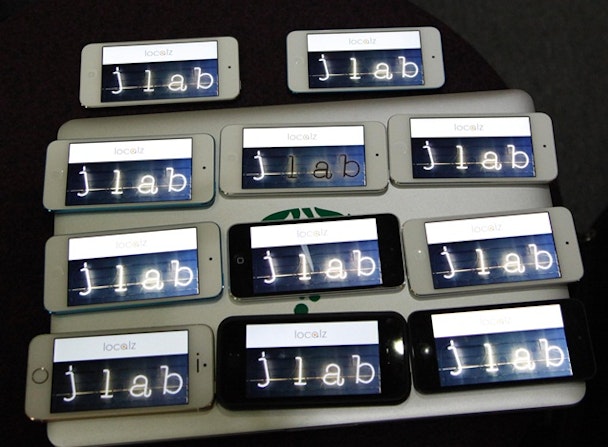12 months after launch: how have John Lewis’ geo-location experiments with JLab winner Localz shaped up?
Localz was crowned the winner of John Lewis first technology incubator scheme JLab. One year later, The Drum caught up with the retailer and geo-location start-up to find out what’s happened since.

It’s been a whirlwind year for Australian-based Localz since the retailer awarded it £100,000 and a chance for the start-up to trial its micro-location offering in-stores. The Localz tech promises to make the smartphone a more pivotal part of the in-store experience, sending offers and content directly to shoppers' phones based on their location, as well as using that information to automatically trigger their 'Click and Collect' orders as they enter a store, consequently speeding up the collection process.
Since then, it has conducted one invite-only trial for staff members at the retailer’s Peter Jones store in central London and is now planning to take it to customers in Watford and Cambridge.
Speaking to The Drum, the retailer’s innovation manager John Vary said the first trial has been hugely beneficial.
“We wanted to capture as many of the negative experiences as possible; without doing those physical trials you never see what those problems are,” he said.
Today, online shopping accounts for over a third of sales for the retailer and over six million 'Click and Collect' orders go through its systems each year.
The crux of the concept from Localz was making the process for both staff and customers more efficient, which is particularly pertinent now as it announced that there will be a £2 charge for click and collect orders under £30.
When a customer comes to pick up their order, the John Lewis app “wakes up” as they approach the store.
A notification will then be sent to staff via hand held device or smartwatch, to prepare the order and ensure that the customer’s parcels are waiting as soon as they reach the collection point.
Among the first lessons was offsetting “the creepy” aspect of the personalised service with making the experience of using feel natural to shoppers. John Lewis initially wanted to set the process in motion without any disturbance to the customer. However, it found that people still wanted an element of notification, especially if they plan to shop before collecting their order. And so it’s now testing notifications which allow the customer to accept or delay their order being processed.
The next phase of trials will take place at John Lewis’ Cambridge and Watford stores, with Vary also looking at how it might be used during the busy Christmas period.
“We’re not going to rush this with Localz. It has to be perfect. It has to have an identity. Otherwise, people will just close up,” he said.
Thanks to the awareness generated from winning JLab, Localz is now also working with several other retailers in the UK on geo-location experiments.
It was immediately approached by PayPal and invited to work from its London offices; the two have since pitched together to clients on how payments and location can be connected.
With offices in London and Melbourne, Localz is now plotting its entry into the US market.

